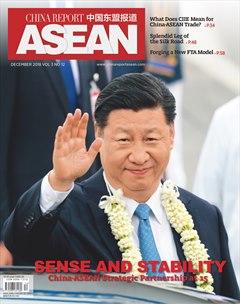Xi’s Asia—Pacific Trip Boosts Cooperation
From November 15 to 21, Chinese President Xi Jinping attended the 26th Asia-Pacific Economic Cooperation (APEC) Economic Leaders' Meeting, paid state visits to Papua New Guinea (PNG), Brunei and the Philippines and met with leaders of the Pacific island countries that have diplomatic ties with China during his stay in PNG.
While attending the APEC meeting, Xi offered Chinese wisdom and approaches to achieving economic development and cooperation in the Asia-Pacific region and the world at large, amid increasing economic instability and uncertainty and other global challenges.
Noting that the world is at a critical juncture, Xi proposed focusing on openness, development, inclusiveness, innovation and a rules-based approach. He envisioned a common growth mode featuring partnerships, driven by innovation, digitization and exchanges and facilitated by maximum connectivity in the Asia-Pacific region.
On the sidelines of the APEC meeting, Xi met bilaterally with leaders of different countries. In his meeting with Indonesian President Joko Widodo, the leaders advanced bilateral ties with the signing of a memorandum of understanding on boosting joint construction of the China-proposed Belt and Road Initiative and the Indonesia-proposed Global Maritime Axis and another on extending currency swap. They also agreed on strengthening coordination and consultation within the multilateral framework.
Xis visits to Brunei and the Philippines provided important opportunities for developing bilateral ties with those countries. The visits both featured top-level design and lift to higher-level relationships, namely a strategic cooperative partnership with Brunei and a new comprehensive strategic partnership with the Philippines.
Xi also reached consensus with leaders of the two countries on closer people-to-people exchanges and agreed to expand cooperation in sectors such as education, culture, sports, public health and tourism.
The two countries agreed to resolve differences with China through friendly consultations, expand maritime cooperation and push talks on a code of conduct in the South China Sea. They also agreed to work together with China towards greater progress in China-ASEAN cooperation.
The fruitful results of Xis Asia-Pacific trip showed once again that friendship and cooperation dominate the relations between China and its neighbors while serving the interests of regional countries and their peoples. Friendship, common development and proper management of differences will help make the South China Sea waters of peace, friendship and cooperation, contributing to regional stability, growth and prosperity.

